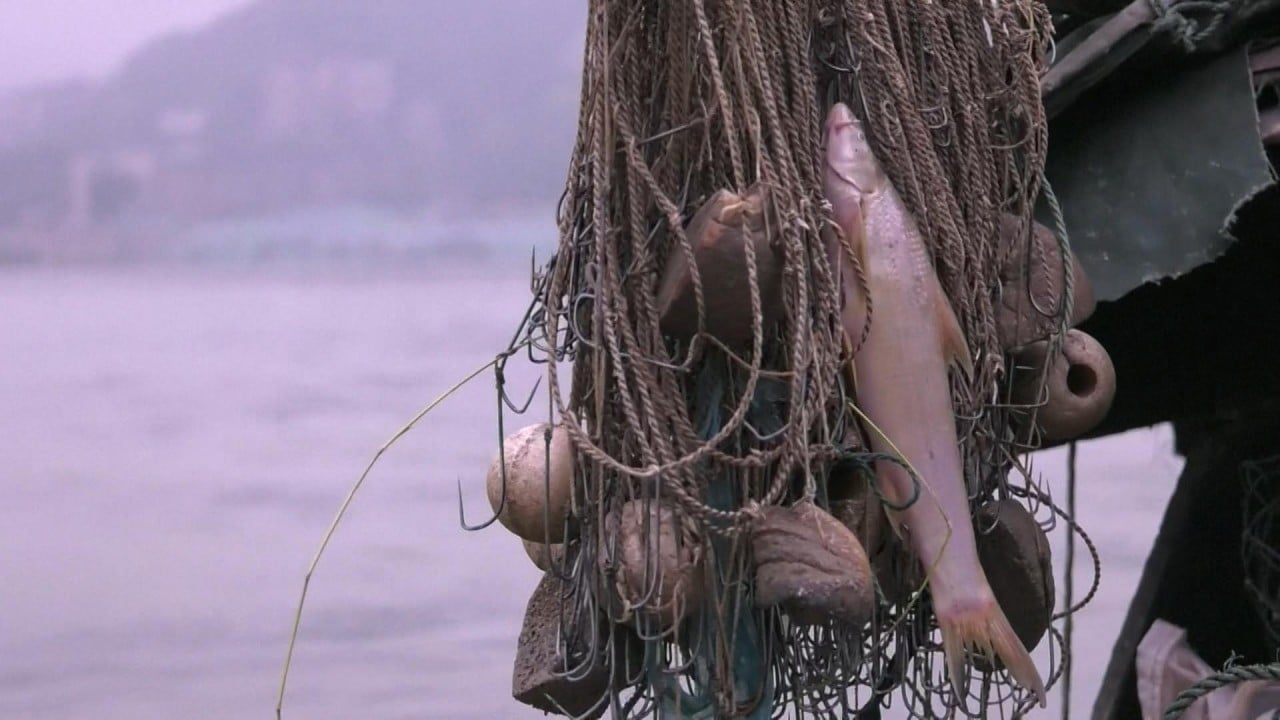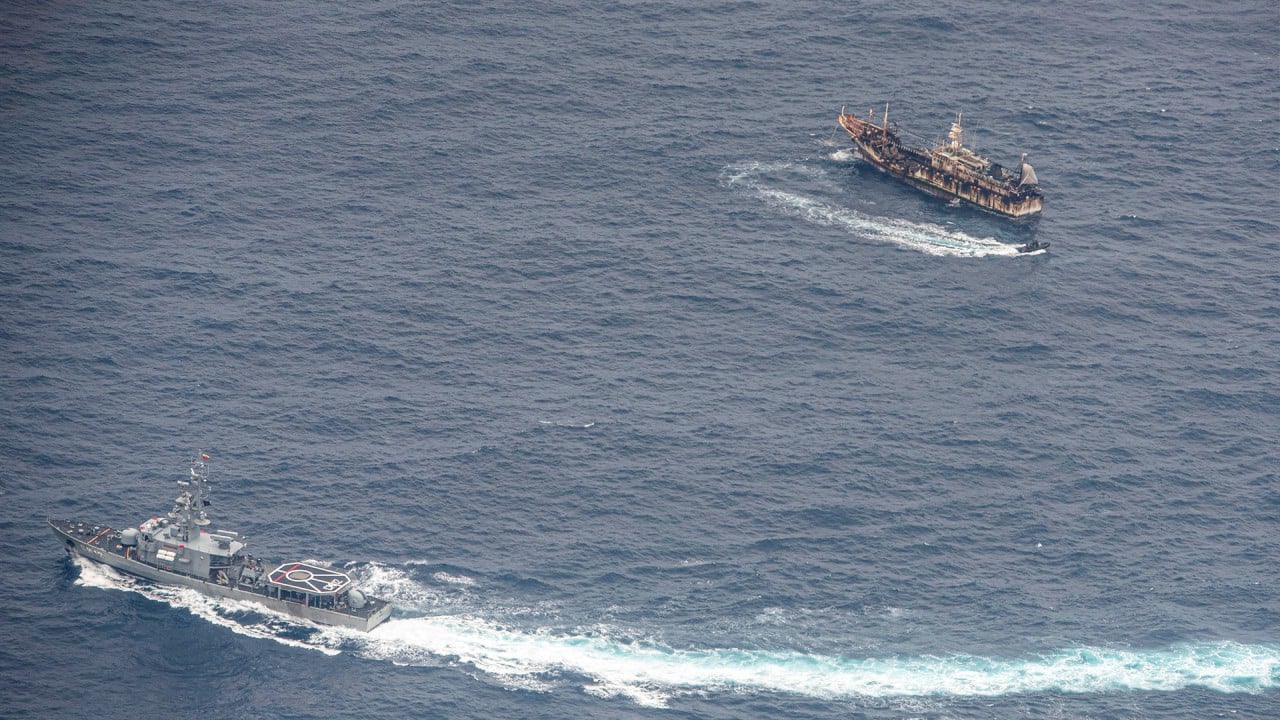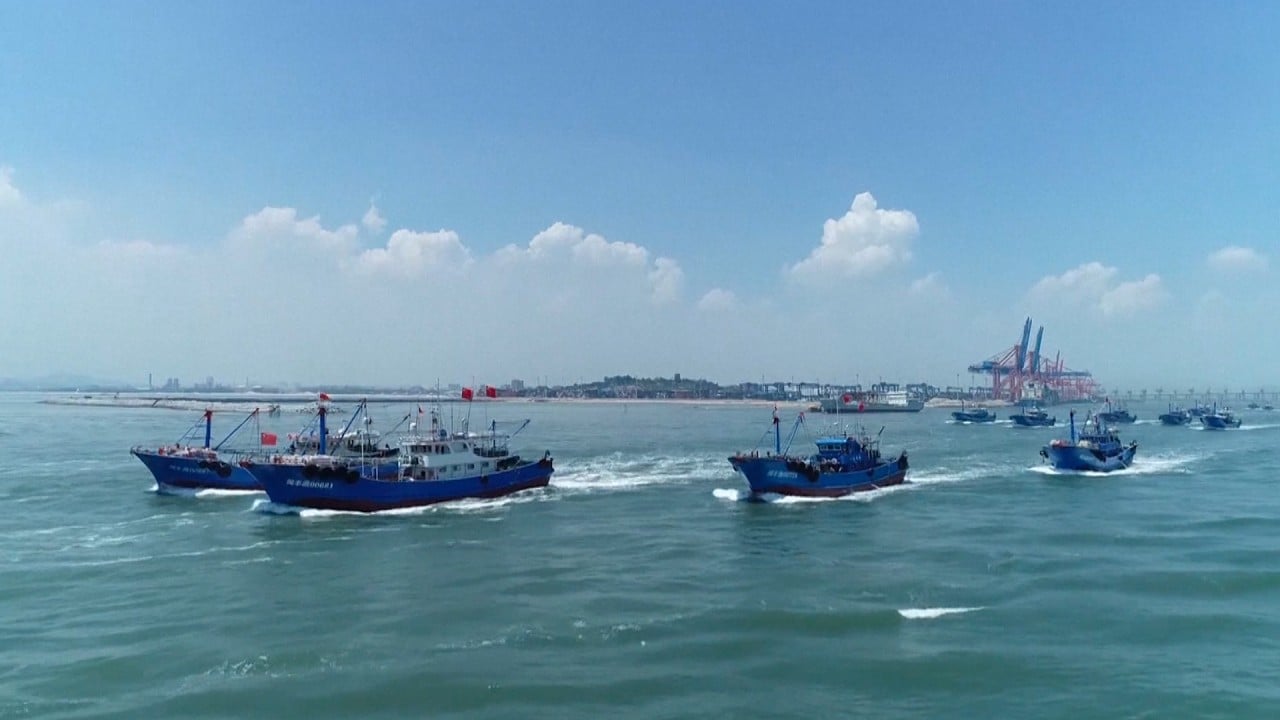
China has a golden opportunity to show global leadership, with a WTO fisheries deal
- China is a fishing superpower. If Beijing is truly committed to a rules-based multilateral trading system, it must show leadership in securing a meaningful WTO agreement to tackle global fishing subsidies and curb overfishing

01:57
China imposes a 10-year fishing ban for Yangtze River to protect marine biodiversity
Subsidies have played a major role in the current crisis by fuelling overcapacity and overfishing (too many vessels chasing too few fish, in other words). An estimated US$35 billion in fisheries subsidies are provided annually, with the vast majority going to large-scale, industrial fishing operations.
Subsidies allow fleets to intensify and broaden the scope of their fishing, building and operating larger boats that can travel greater distances and remain at sea for longer periods.
Propelled by subsidies, overfishing causes severe damage to fragile marine ecosystems and undermines the sustainability of global fisheries. But this is not just an environmental issue. It is also a critical issue for global poverty and development.
Many developing countries depend heavily on fisheries for food security, employment and livelihoods, and are acutely vulnerable to plummeting fish harvests. The harmful effects of subsidies are felt most keenly in these poor countries, where competition from subsidised foreign fishing fleets has been devastating.

02:06
Nearly half of Chinese vessels fishing near the Galapagos cut off communications, Ecuador says
West Africa, for example, has some of the world’s richest fishing grounds, but its fish stocks are rapidly being depleted by heavily subsidised foreign ships. Locals fishing from hand-hewn canoes are competing against industrial mega trawlers with mile-long nets that scoop up everything from the seabed to the surface.
Declining fish stocks have resulted in falling incomes for local fisherfolk – many of whom live in conditions of poverty and severe hardship – along with reduced domestic food supply.
Given the immense harm caused by fisheries subsidies, there is a pressing need for new WTO rules to restrict such subsidies. But in the absence of strong leadership, the WTO negotiations have stalled. Many negotiators fear there is little hope of reaching an agreement by the end of this year.

01:24
China ends fishing ban in South China Sea, raising fear of potential conflicts among fishermen
China has become the world’s largest fisheries producer, consumer, importer and exporter. Most importantly, China is now also the world’s biggest subsidiser.
A meaningful agreement is simply not possible unless Beijing is willing to rein in its subsidies. As the dominant player in this sector, China’s support for an ambitious WTO fisheries deal is crucial to unlocking an agreement.
A true commitment to a rules-based multilateral trading system means not only enjoying the benefits of trade but also being willing to shoulder the responsibility for maintaining that system and ensuring that it brings benefits to all.
If China is seeking to increase its clout by showing itself to be a responsible player on the international stage – in contrast to the reckless, antisocial behaviour of the Trump administration – this is a prime opportunity.
China should demonstrate its commitment to the liberal trading order by playing a leading role in securing a WTO agreement to eliminate harmful fisheries subsidies.
Kristen Hopewell is Canada Research Chair in Global Policy at the University of British Columbia and the author of Clash of Powers: US-China Rivalry in Global Trade Governance

